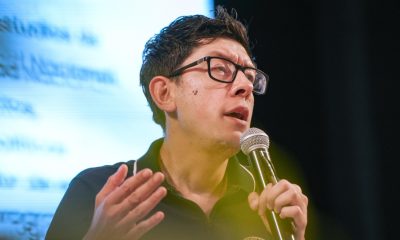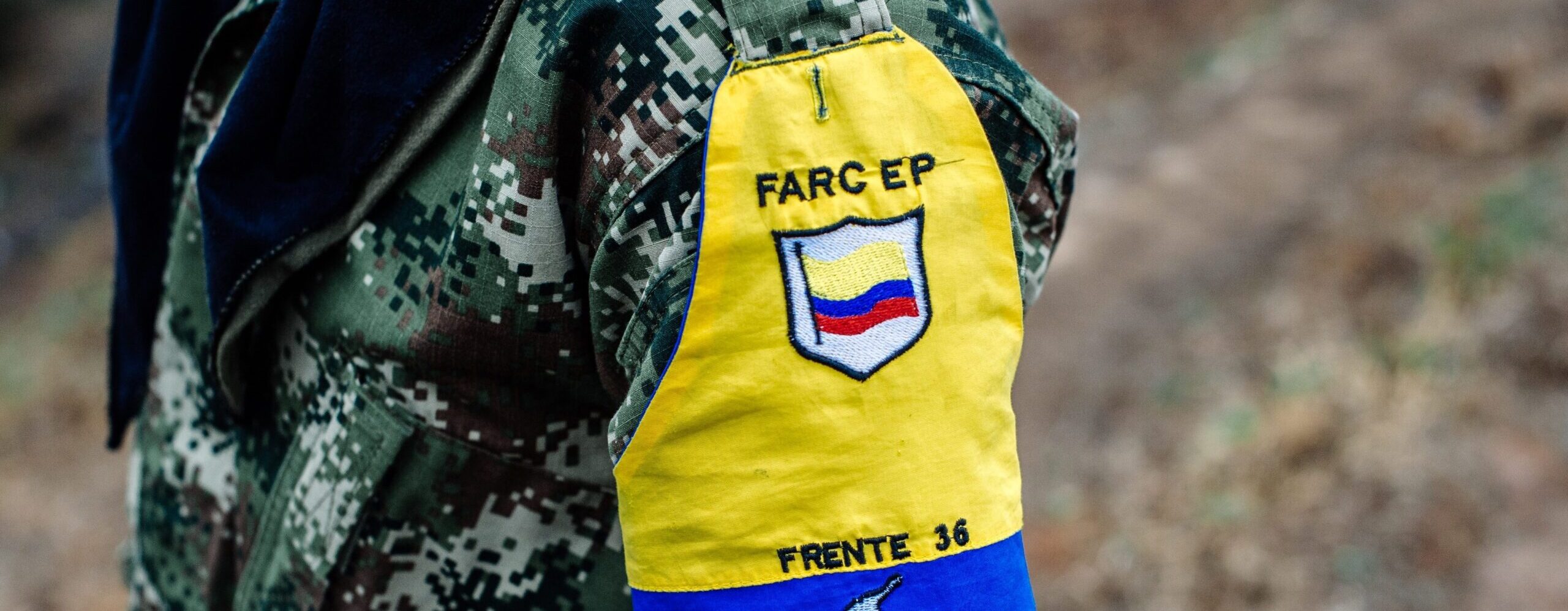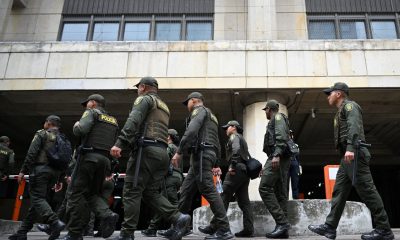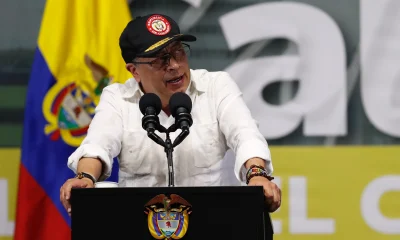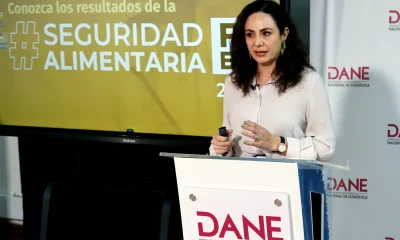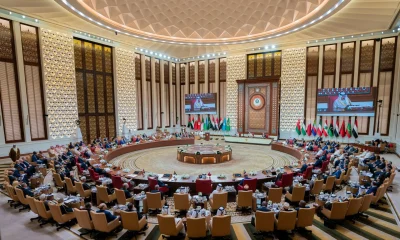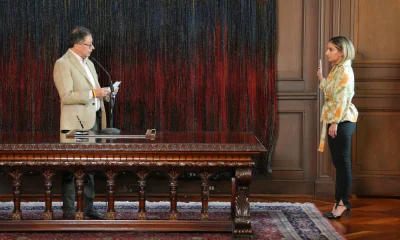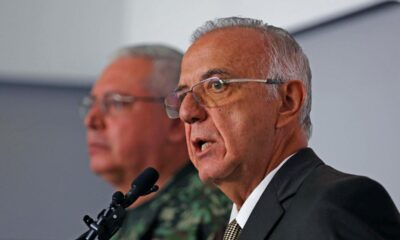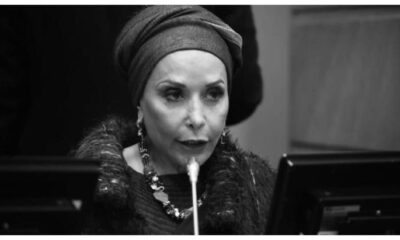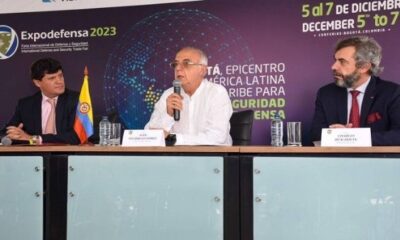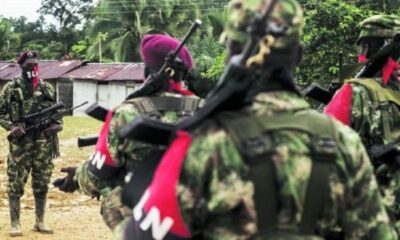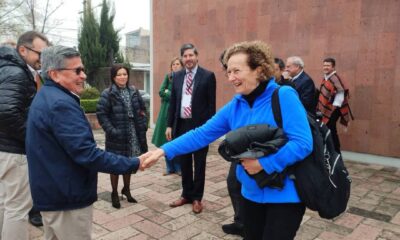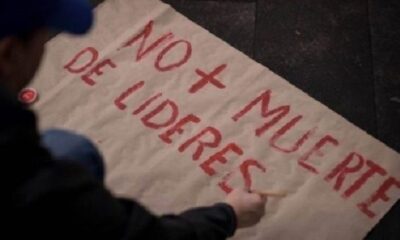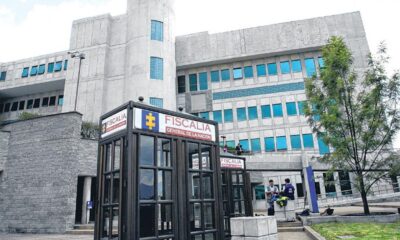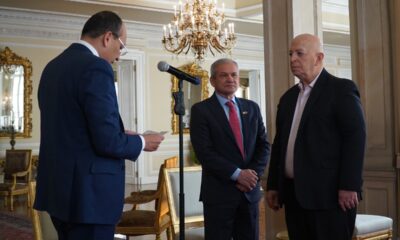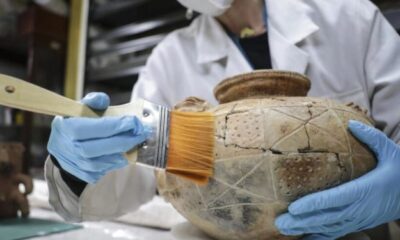International
Asking for permission to enter the house: the demand of Colombian indigenous people against Mennonites
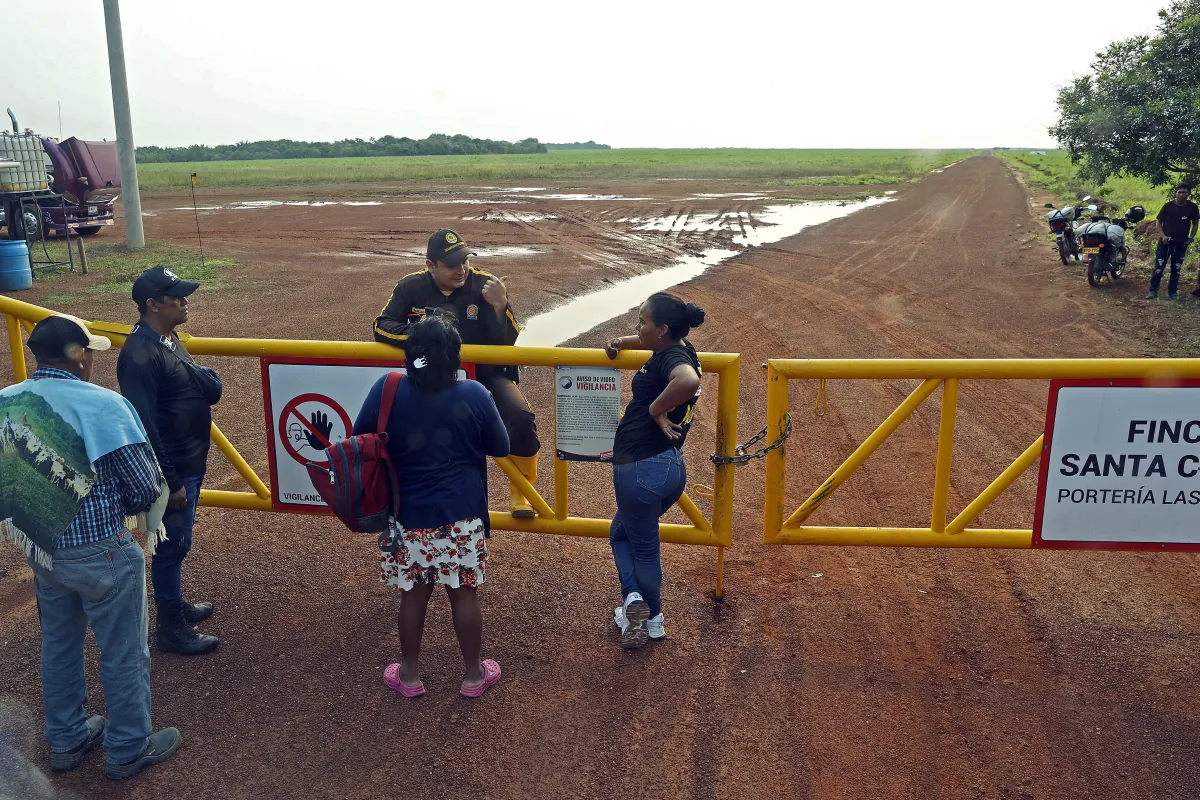
“Yesterday they returned us,” say the Sikuani indigenous authorities in front of the barrier that prevents them from entering their homes, waiting for authorization to continue, and denounce that their ancestral lands, in the Colombian department of Meta, are now owned by third parties who, they say, bought them irregularly.
On the Santa Catalina farm, owned by the meat company La Fazenda, they receive a refusal to pass by the entourage of journalists that accompanies them; they try their luck with the other entrance, that of the Mennonite ultra-religious community, which does authorize them to pass.
“Our grandparents are buried here,” says Jairo Ortiz in front of one of the sacred sites of the Sikuani, now in Mennonite territory.
“In times of violence they left here, they did not sell the land to anyone and left them thrown away, at that time other people who are not indigenous arrived and they took over,” says the captain, a position of authority of this semi-nomadad people displaced in several episodes of Colombian history.
In the Meta they lived until the so-called period of “violence”, which began in 1946, when they had to flee to the neighboring departments of Vichada and Guaviare. Then they returned but came back to persecution with the “guahibiadas” and “jaramilladas”, terms used to refer to the hunts of indigenous people to displace them from their lands and seize them.
A few years ago they returned to the land of their ancestors when the Colombian conflict lowered its intensity, but they realized that theirs was now in the hands of others, including the ultra-religious Mennite community that, coming from Mexico, found the promised land in the Colombian Oriental Plains.
The problem of land in Colombia is one of the great debts of the State; it is very difficult to know whose property each property is because many territories are not entitled.
Now, the 135 Sikuani families of this settlement claim their lands and denounce their appropriation and accumulation by foreigners.
The Mennonites, when they saw the potential of the Meta, hired a lawyer who advised them on the purchase of land, so “in principle” they are legal, explains Diana Quintero, a lawyer of the National Commission of Indigenous Territories, who accompanies the Sikuani in their lawsuit, explains to EFE.
The problem comes when the titles that the Mennonites bought are analyzed, awarded by the state National Land Agency because they were vacant of the nation.
The rule says the wastelands have to remain in the hands of their owner for a certain time, but those who were sold to the religious community did not meet this deadline and the indigenous peoples were not taken into account.
Another alleged irregularity, Quintero continues, is that the allocation of vacant lots has a limit of hectares, something called the Family Agricultural Unit (UAF), and the owners of these lands acquired more than allowed by law, incurring hoarding.
Quintero maintains that the Mennonites hoard because “although they say they are different families, they are part of a nucleus” and link all their lands in the same production process, exceeding the legal limit of UAF.
“Two years ago the Mennonites began to enter little by little. He could not be told anything because they have someone who supports them,” explains Alexander Álvarez, governor of the Iwitsulibo community, which brings together 80 families, in reference to the alleged alliances of the religious community.
According to the indigenous people, in the area there is the presence of paramilitaries of the Gaitanist Self-Defense of Colombia (AUC), allied with the Mennonites to provide them with security. They travel with motorcycles without a license plate and do not identify themselves, while all the Sikuani authorities report having received threats for their demands.
The Sikuani demand a total of 58,000 hectares to be distributed among the four communities and ask for a receipt to be made. Tsabilonia is the community that is closest to getting its claims, since it has been awarded – pending formalization – a territory in extinction of domain that belonged to drug traffickers, but they demand more hectares.
At the entrance of Tsabilonia the difference in the use of the land made by both communities is visible: on the Mennonite side there is not a single tree, only hectares waiting to be cultivated, and on the Sikuani side, pasture and native vegetation.
“They are pressuring us, we are being contaminated by foreign Mennonites who come from Germany, Canada and Mexico,” denounces Albarrubiela Gaitán, the traditional authority of the Barrulia territory: “We want to be calm in our territory, cultivating our uses and customs because as indigenous people we need our motherland to live in peace and freedom.”
The plantings of the Mennonites arrive almost at the door of the house of Albarrubiela; for the moment, the religious community continues to expand the agricultural border while the Sikuani expect the Colombian Justice to issue a decision on a land that went from hope to dispute.
Central America
Senator Van Hollen Meets with Deported MS-13 Member in El Salvador; Trump and Bukele React

U.S. Democratic Senator Chris Van Hollen, representing the state of Maryland, held a meeting in El Salvador with deported MS-13 gang member Kilmar Ábrego García, a member of the criminal group classified by the U.S. government as a terrorist organization.
“Kilmar Ábrego García, miraculously resurrected from the ‘extermination camps’ and ‘torture chambers,’ now sipping margaritas with Senator Van Hollen in the tropical paradise of El Salvador!” wrote President Nayib Bukeleon X (formerly Twitter), sharing photos of Van Hollen, Ábrego García, and a lawyer sitting together at a Salvadoran hotel.
The deported gang member is seen wearing a plaid shirt and a flat-brimmed cap, seated at a table with glasses and coffee cups. The senator also shared images of the meeting on his own social media accounts.
Bukele reaffirmed that Ábrego will remain in El Salvador and will not be returned to the United States.
“Now that his health has been confirmed, he has earned the honor of remaining under the custody of El Salvador,” Bukele added.
Former U.S. President Donald Trump criticized the senator’s meeting with Ábrego on Truth Social, calling Van Hollen “a fool” for advocating for Ábrego’s return to the U.S.
International
Pope Francis Appears for Easter Blessing, Calls for Peace and Religious Freedom

Pope Francis, still recovering from pneumonia, appeared on the balcony of St. Peter’s Basilica in the Vatican on Easter Sunday and, with a faint voice, wished a “Happy Easter” to the thousands of faithful gathered to celebrate the Resurrection of Christ.
A month after being discharged from a lengthy hospital stay, the presence of the 88-year-old pontiff had remained uncertain, with the Vatican not confirming his attendance ahead of time.
Eventually, the pope made a brief appearance in a wheelchair shortly after 12:00 p.m. (10:00 GMT) to deliver his traditional “Urbi et Orbi” blessing (“to the city and to the world”).
Although no longer wearing an oxygen cannula, the Argentine Jesuit relied on a close aide to read his Easter message, which touched on major global conflicts.
Francis condemned the “dramatic and unworthy humanitarian crisis” in Gaza and called for a ceasefire, while also expressing concern over the “growing climate of antisemitism spreading across the globe.”
He further emphasized the importance of religious freedom and freedom of thought, stating that without mutual respect, “peace is not possible.”
International
Thousands rally nationwide against Trump’s threat to U.S. democracy

Thousands of protesters gathered on Saturday (April 19, 2025) in major cities like New York and Washington, as well as in small communities across the United States, in a second wave of demonstrations against President Donald Trump. The crowds denounced what they view as growing threats to the country’s democratic ideals.
In New York City, demonstrators of all ages rallied in front of the Public Library near Trump Tower, holding signs accusing the president of undermining democratic institutions and judicial independence.
Many protesters also criticized Trump’s hardline immigration policies, including mass deportations and raids targeting undocumented migrants.
“Democracy is in grave danger,” said Kathy Valyi, 73, the daughter of Holocaust survivors. She told AFP that the stories her parents shared about Adolf Hitler’s rise to power in 1930s Germany “are happening here now.”
In Washington, demonstrators voiced concern over what they see as Trump’s disregard for long-standing constitutional norms, such as the right to due process.
-

 International4 days ago
International4 days agoArsenal stun Real Madrid at the Bernabéu to reach Champions League semifinals
-

 Central America3 days ago
Central America3 days agoNicaraguan Exiles to Mark 7th Anniversary of 2018 Protests with Global Commemorations
-

 International3 days ago
International3 days agoDominican ‘False Hero’ Arrested for Faking Role in Nightclub Collapse That Killed 231
-

 International2 days ago
International2 days agoACLU seeks emergency court order to stop venezuelan deportations under Wartime Law
-

 International4 days ago
International4 days agoBogotá residents line up for yellow fever vaccine amid national alert
-

 International4 days ago
International4 days agoDeSantis’ immigration crackdown sparks alarm in Venezuelan Communities in Doral
-

 Central America2 days ago
Central America2 days agoUN complaint filed against Costa Rica over detention of migrant children
-

 International4 days ago
International4 days agoMexico refuses to restore ties with Ecuador while Noboa remains in office
-

 International22 hours ago
International22 hours agoThousands rally nationwide against Trump’s threat to U.S. democracy
-

 International4 hours ago
International4 hours agoPope Francis Appears for Easter Blessing, Calls for Peace and Religious Freedom
-

 Central America4 hours ago
Central America4 hours agoSenator Van Hollen Meets with Deported MS-13 Member in El Salvador; Trump and Bukele React


















